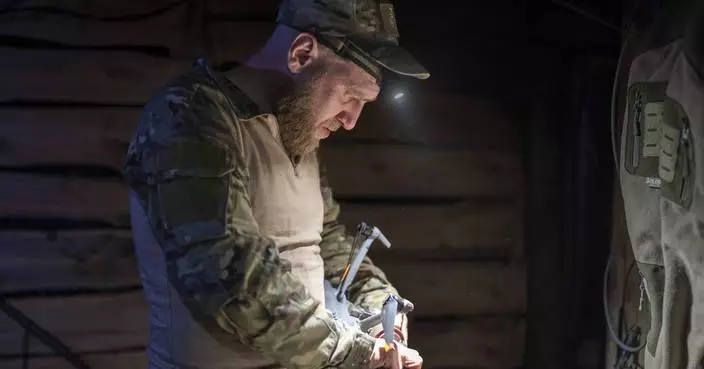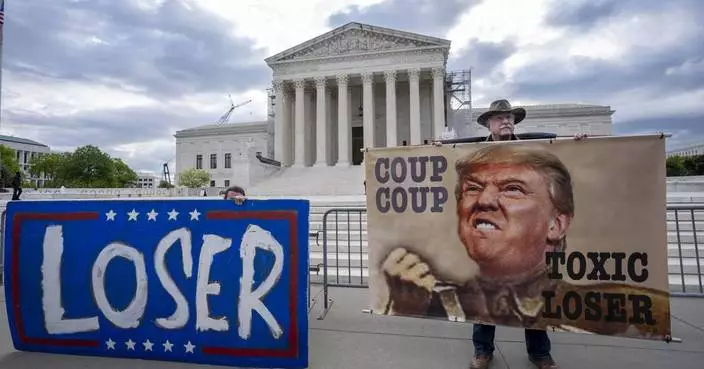The U.S., Britain and Australia have accused the Russian government of maliciously targeting global internet equipment for political and economic espionage.
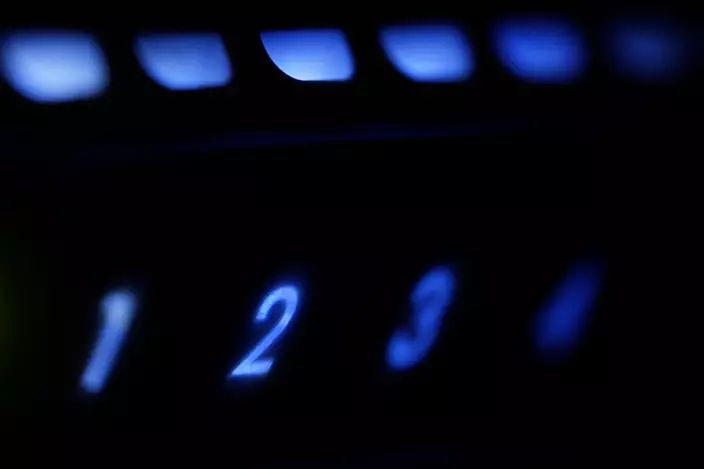
FILE - This Sunday, July 27, 2008, file photo shows an LED-illuminated wireless router in Philadelphia. On Monday, April 16, 2018, Washington and London jointly accused Russia’s government of targeting internet equipment in the U.S. and U.K. for political and economic espionage. (AP Photo/Matt Rourke, File)
The governments said the Russian operations, which allegedly involve planting malware on internet routers and other equipment, could also lay the foundation for future offensive cyberattacks.
A joint statement Monday by the U.S. Department of Homeland Security, the FBI and the U.K.'s National Cyber Security Centre said the main targets include "government and private-sector organizations," as well as providers of "critical infrastructure" and internet service providers.
"Victims were identified through a coordinated series of actions between U.S. and international partners," according to a companion technical alert issued by the U.S. Computer Emergency Response Team (US-CERT). Both nations have "high confidence" in the finding of Russian-sponsored cyber-meddling, which the alert said has been reported by multiple sources since 2015.
Australia also admonished Russia and accused Kremlin-backed hackers of cyberattacks on hundreds of Australian companies last year.
Routers direct data traffic across the internet. US-CERT said the compromised routers can be exploited for "man-in-the-middle" spoofing attacks, in which communications are intercepted by a seemingly trusted device that has actually been infiltrated by an attacker.
"The current state of U.S. network devices — coupled with a Russian government campaign to exploit these devices — threatens the safety, security, and economic well-being of the United States," the alert stated. An email message seeking comment from the Russian embassy in Washington, D.C., received no response.
US-CERT urged affected companies, and public sector organizations and even people who use routers in home offices to take action to harden poorly-secured devices. But its alert cited only one specific product: Cisco's Smart Install software.
Australian Defense Minister Marise Payne said about 400 Australian companies were targeted in the 2017 Russian attacks, but there was no "exploitation of significance."
"The points which this reinforces for us as a government, and should reinforce for all Australians, is that vigilance is absolutely imperative in terms of cyber security," Payne told reporters Tuesday.
Australian Cyber Security Minister Angus Taylor said despite the number of organizations affected, there was no indication Australian information had been compromised.
"Commercially available routers were used as a point of entry, demonstrating that every connected device is vulnerable to malicious activity," Taylor said.
"This attempt by Russia is a sharp reminder that Australian businesses and individuals are constantly targeted by malicious state and non-state actors, and we must maintain rigorous cyber security practices," he added.
On March 15, US-CERT issued a similar alert saying the FBI and DHS had determined that Russian government "cyber actors" had sought to infiltrate U.S. agencies as well as "organizations in the energy, nuclear, commercial facilities, water, aviation, and critical manufacturing sectors." It said Russian agents had obtained "remote access" to energy sector networks and obtained information on industrial control systems.
Experts have stressed that the March 15 bulletin did not mean Russia had obtained access to systems that control critical infrastructure such as the power grid. But Russia does have history in this regard, as many security experts blame it for several cyber-sabotage attacks on Ukraine's power grid.
AUGUSTA, Maine (AP) — An Army reservist and friend of the gunman behind Maine’s deadliest mass shooting testified Thursday about his friend's mental decline, describing publicly for the first time the warning he issued a month before the tragedy unfolded.
Sean Hodgson texted leaders of his reserve unit six weeks before the shooting that left 18 people dead and 13 wounded, telling them to change the passcode to the gate at their Army Reserve training facility and arm themselves if Robert Card showed up.
Hodgson told a panel investigating the mass shooting on Thursday that he issued the warning to superiors after Card’s delusional and violent behavior spiraled and ended with Card punching him in the face.
“I said ‘Just so you know, I love you. I’ll always be there for you. I won’t give up on you.’ He had that blank stare on his face. It was a dead stare and he drove away,” Hodgson recounted as his friend left him at a gas station.
The attacks happened six months ago on Oct. 25 when Card opened fire at a bowling alley and a bar in Lewiston, two locations where he held a delusional belief that people were talking about him behind his back. Two days later, the 40-year-old Reservist was found dead of a self-inflicted gunshot wound.
Hodgson told superiors on Sept. 15: “I believe he’s going to snap and do a mass shooting.”
But it wasn't just Hodgson who was worried about Card. Several other reservists witnessed his deterioration during training last summer. That led to a two-week hospitalization in July for Card, months after relatives warned police he had grown paranoid and that they were concerned about his access to guns.
The failure of authorities to remove Card’s weapons in the weeks before the shooting has become the subject of a monthslong investigation in the state, which also has passed new gun safety laws since the tragedy.
In an interim report released last month, an independent commission launched by Gov. Janet Mills concluded that the Sagadahoc County sheriff’s office had probable cause under Maine’s “yellow flag” law to take Card into custody and seize his guns. It also criticized police for not following up with Hodgson about his warning text. A final report is expected this summer.
On Thursday, Hodgson said he warned of a mass shooting because Card threatened multiple members of the unit with violence and that his threats and delusions were escalating. And he had access to guns.
“The way he was behaving was very threatening. It was escalating. The totality of the circumstances, the events leading to that moment, I was pretty convinced he was going to cause harm,” he said.
Another reservist, Daryl Reed, testified he witnessed Card’s mental and physical decline firsthand, seeing a “normal guy” who successfully traded stocks and loved hunting and the outdoors become increasingly paranoid and believing others were calling him a pedophile.
Card also acquired an expensive night vision scope that he said he used for hunting, Reed said.
He added fellow reservists started to become concerned Card could become a danger to colleagues. They were surprised, several testified, when Card was released from a psychiatric hospital after only two weeks.
In an exclusive series of interviews in January, Hodgson told The Associated Press he met Card in the Army Reserve in 2006 and that they became close friends after both divorced their spouses around the same time. They lived together for about a month in 2022, and when Card was hospitalized in New York in July, Hodgson drove him back to Maine.
Growing increasingly worried about his friend’s mental health, Hodgson warned authorities after Card started “flipping out” after a night of gambling, pounding the steering wheel and nearly crashing multiple times. After ignoring his pleas to pull over, Card punched him in the face, Hodgson said.
“It took me a lot to report somebody I love,” he said. “But when the hair starts standing up on the back of your neck, you have to listen.”
Some officials downplayed Hodgson’s warning, suggesting he might have been drunk because of the late hour of his text. Army Reserve Capt. Jeremy Reamer, the commanding officer of the reserve unit, described him as “not the most credible of our soldiers” and said his message should be taken “with a grain of salt.”
Hodgson said he struggles with post-traumatic stress disorder and alcohol addiction but said he wasn’t drinking that night and was awake because he works nights and was waiting for his boss to call.
Cara Cookson, director of victim services for the Maine Office of the Attorney General, also testified Thursday and described through tears the daunting task of responding to the enormity of the tragedy with a “patchwork of resources.”
Thursday evening, the Maine Resiliency Center, which provides support to people affected by the killings, planned to hold a six-month commemoration event at a park in Lewiston. “Our hearts are still healing, and the road to healing is long, but we will continue to walk it together,” the governor said in a statement.
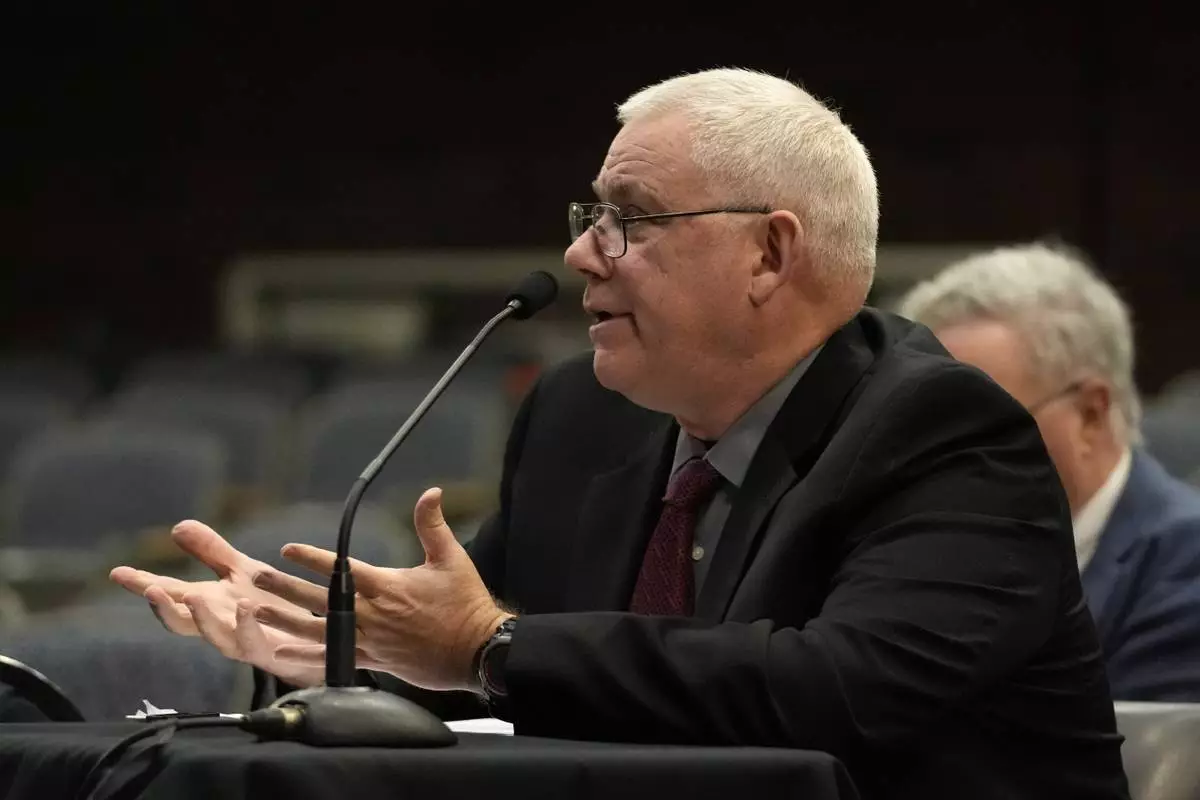
Ed Yurek, a member of the U.S. Army Reserve, gives testimony, Thursday, April 25, 2024, in Augusta, Maine, during a hearing of the independent commission investigating the law enforcement response to the mass shooting in Lewiston, Maine. (AP Photo/Robert F. Bukaty)
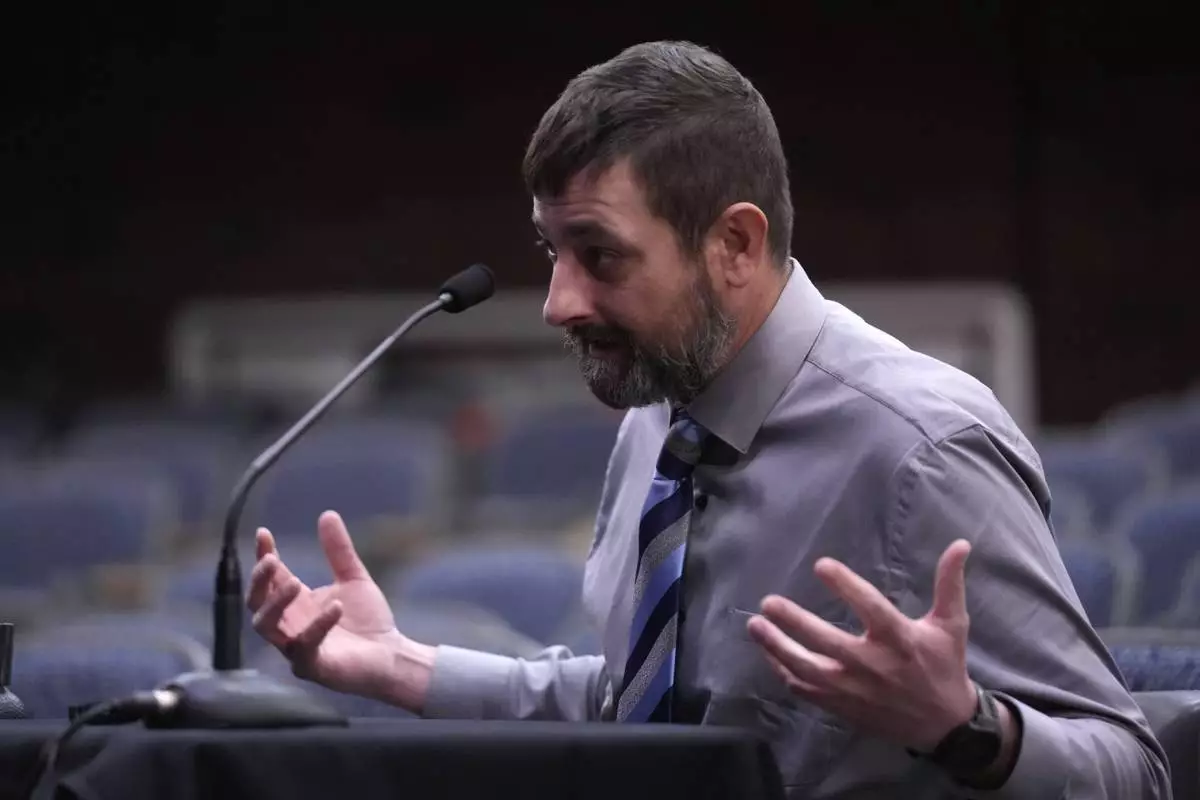
Sean Hodgson, a member of the U.S. Army Reserve, gives testimony, Thursday, April 25, 2024, in Augusta, Maine, during a hearing of the independent commission investigating the law enforcement response to the mass shooting in Lewiston, Maine. (AP Photo/Robert F. Bukaty)
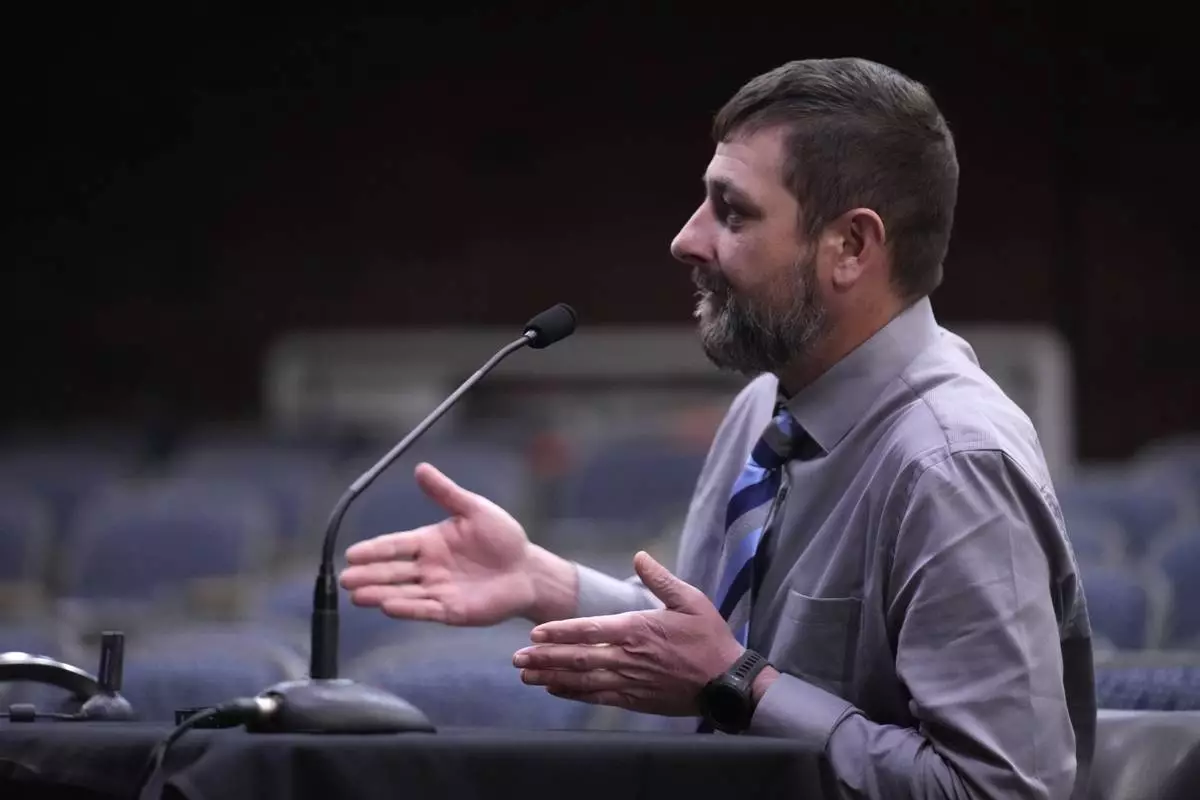
Sean Hodgson, a member of the U.S. Army Reserve, gives testimony, Thursday, April 25, 2024, in Augusta, Maine, during a hearing of the independent commission investigating the law enforcement response to the mass shooting in Lewiston, Maine. (AP Photo/Robert F. Bukaty)
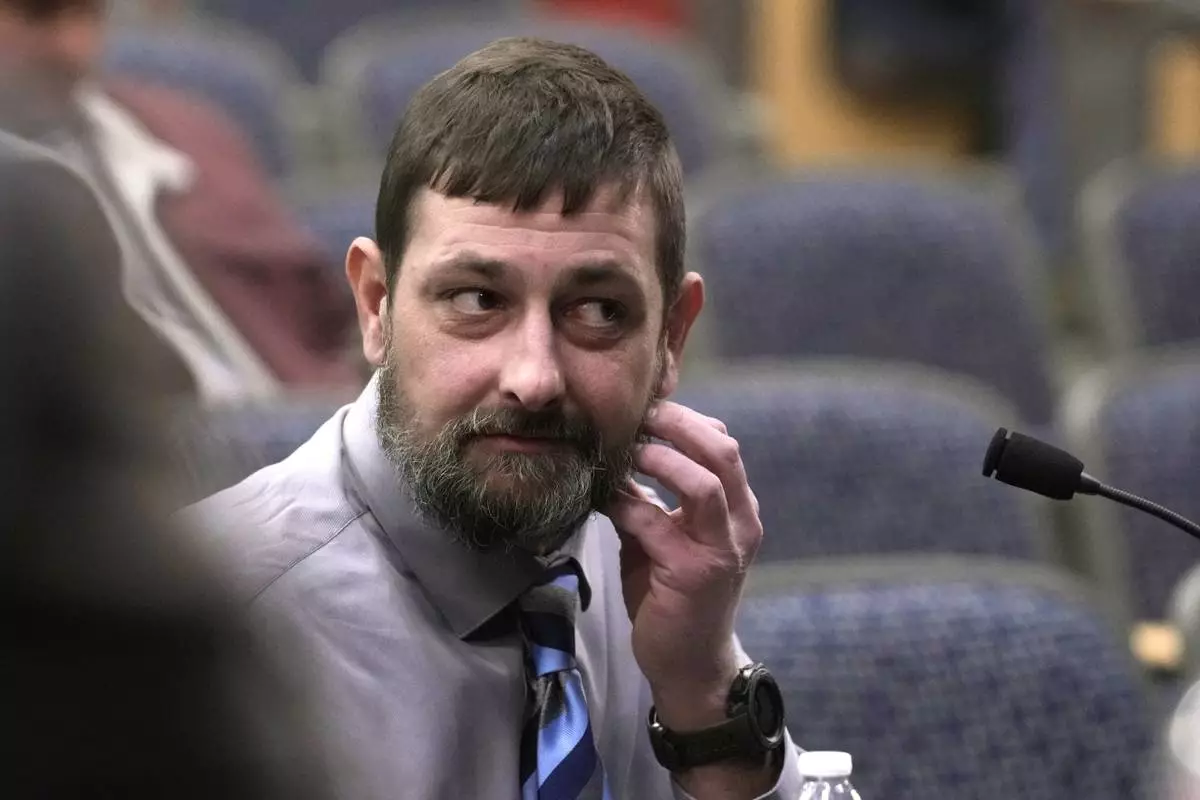
Sean Hodgson, a member of the U.S. Army Reserve, shows where he was punched by Robert Card while giving testimony, Thursday, April 25, 2024, in Augusta, Maine, during a hearing of the independent commission investigating the law enforcement response to the mass shooting in Lewiston, Maine. (AP Photo/Robert F. Bukaty)
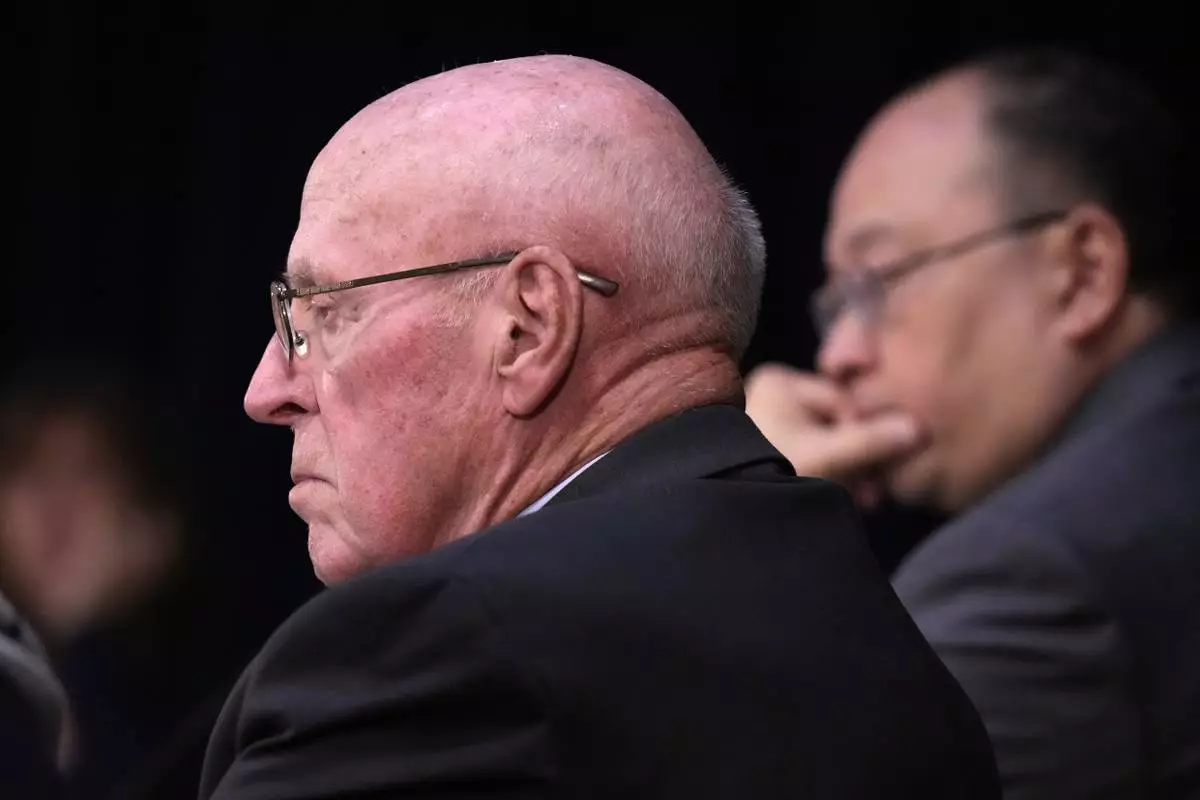
Daniel Wathen listens to testimony, Thursday, April 25, 2024, in Augusta, Maine, during a hearing of the independent commission investigating the law enforcement response to the mass shooting in Lewiston, Maine. (AP Photo/Robert F. Bukaty)
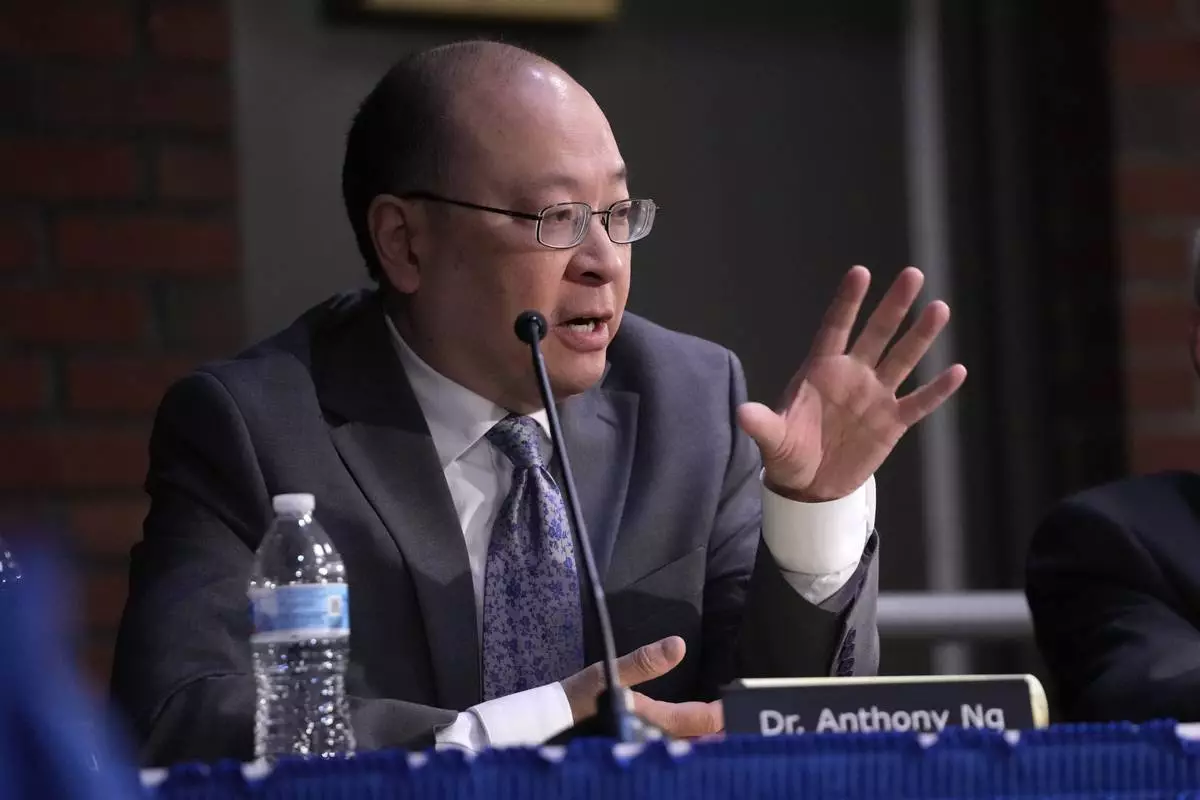
Dr. Anthony Ng questions a witness, Thursday, April 25, 2024, in Augusta, Maine, during a hearing of the independent commission investigating the law enforcement response to the mass shooting in Lewiston, Maine. (AP Photo/Robert F. Bukaty)
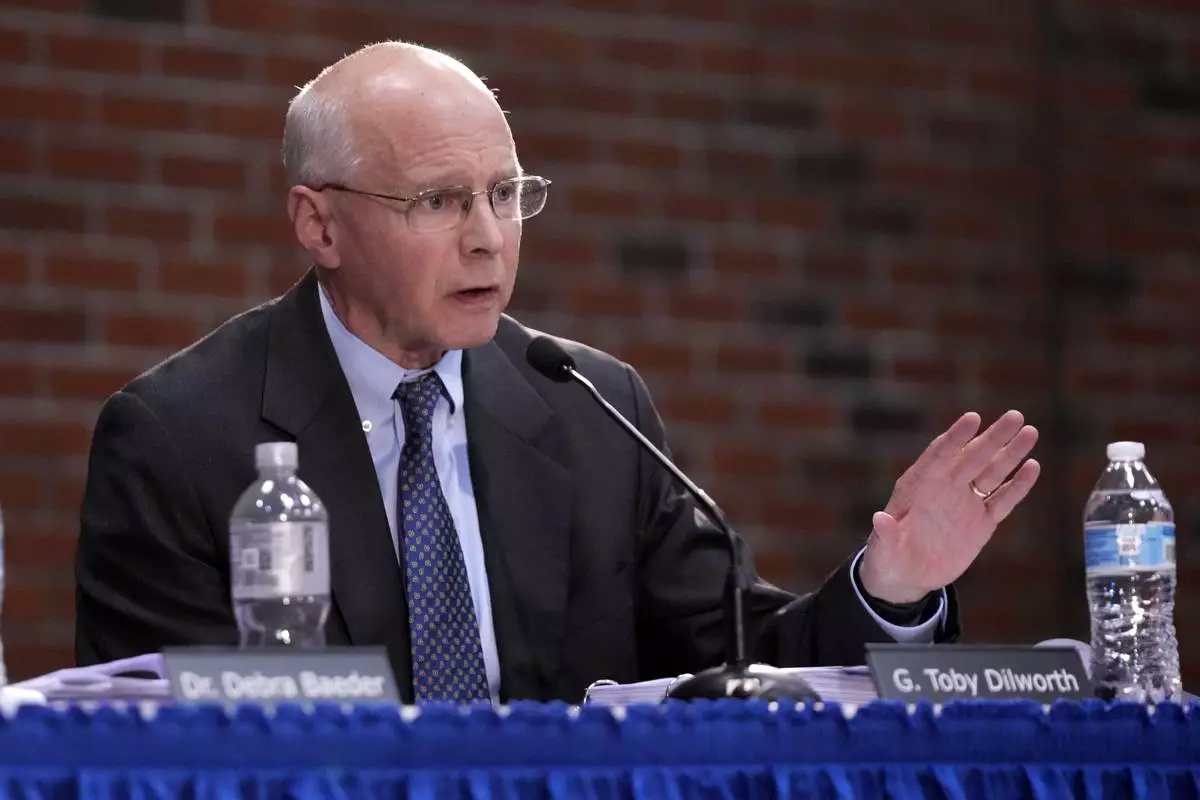
Toby Dilworth questions a witness, Thursday, April 25, 2024, in Augusta, Maine, during a hearing of the independent commission investigating the law enforcement response to the mass shooting in Lewiston, Maine. (AP Photo/Robert F. Bukaty)
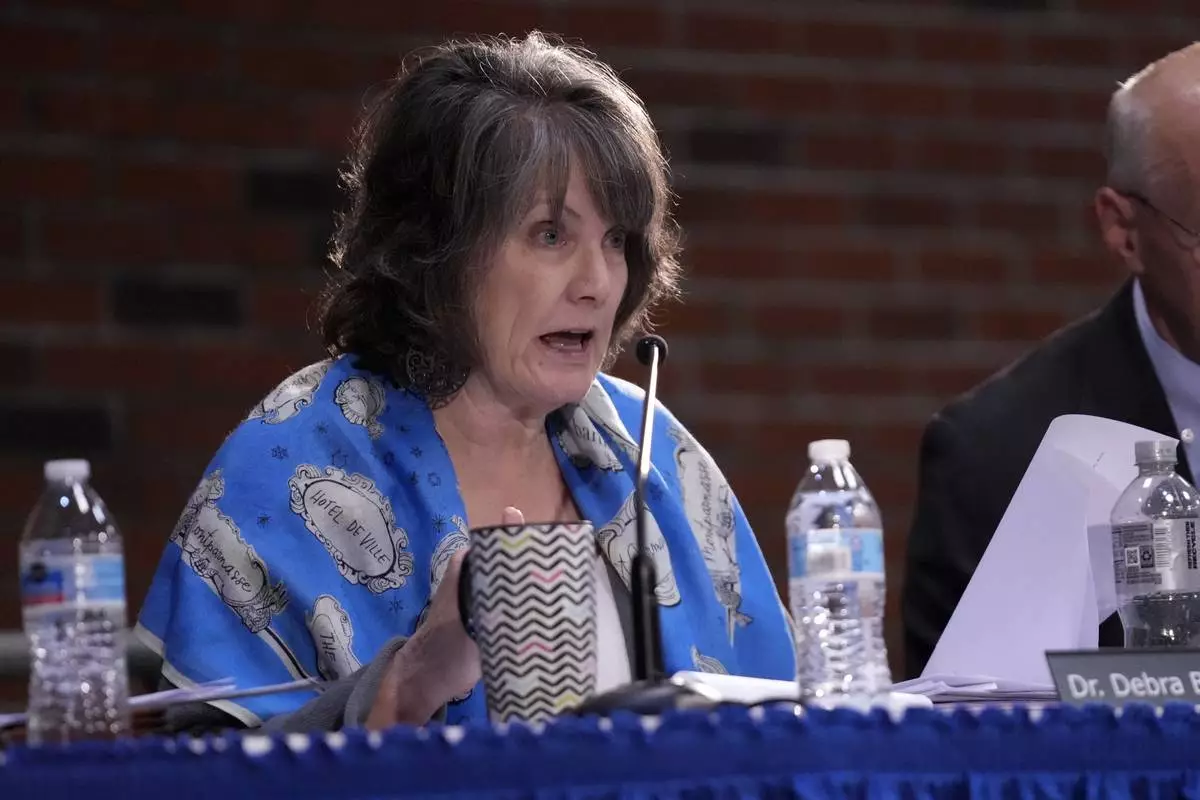
Dr. Debra Baeder questions a witness, Thursday, April 25, 2024, in Augusta, Maine, during a hearing of the independent commission investigating the law enforcement response to the mass shooting in Lewiston, Maine. (AP Photo/Robert F. Bukaty)
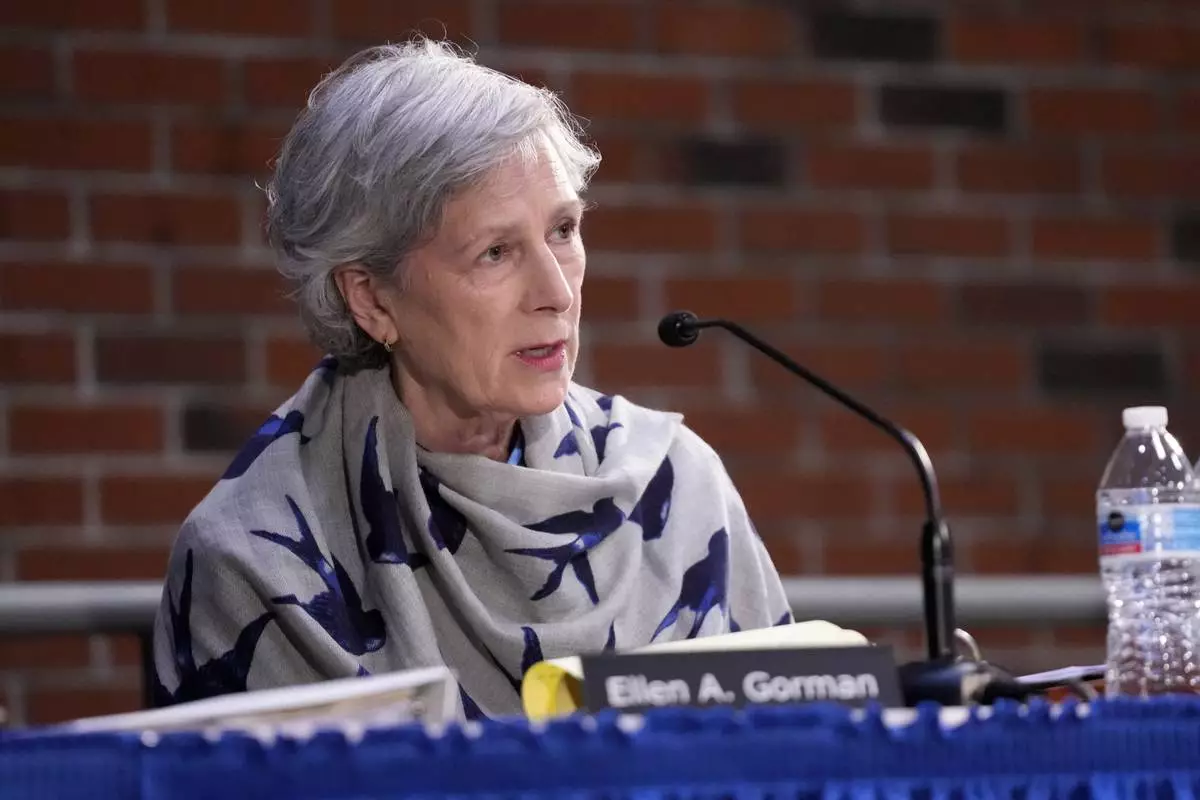
Ellen Gorman questions a witness, Thursday, April 25, 2024, in Augusta, Maine, during a hearing of the independent commission investigating the law enforcement response to the mass shooting in Lewiston, Maine. (AP Photo/Robert F. Bukaty)
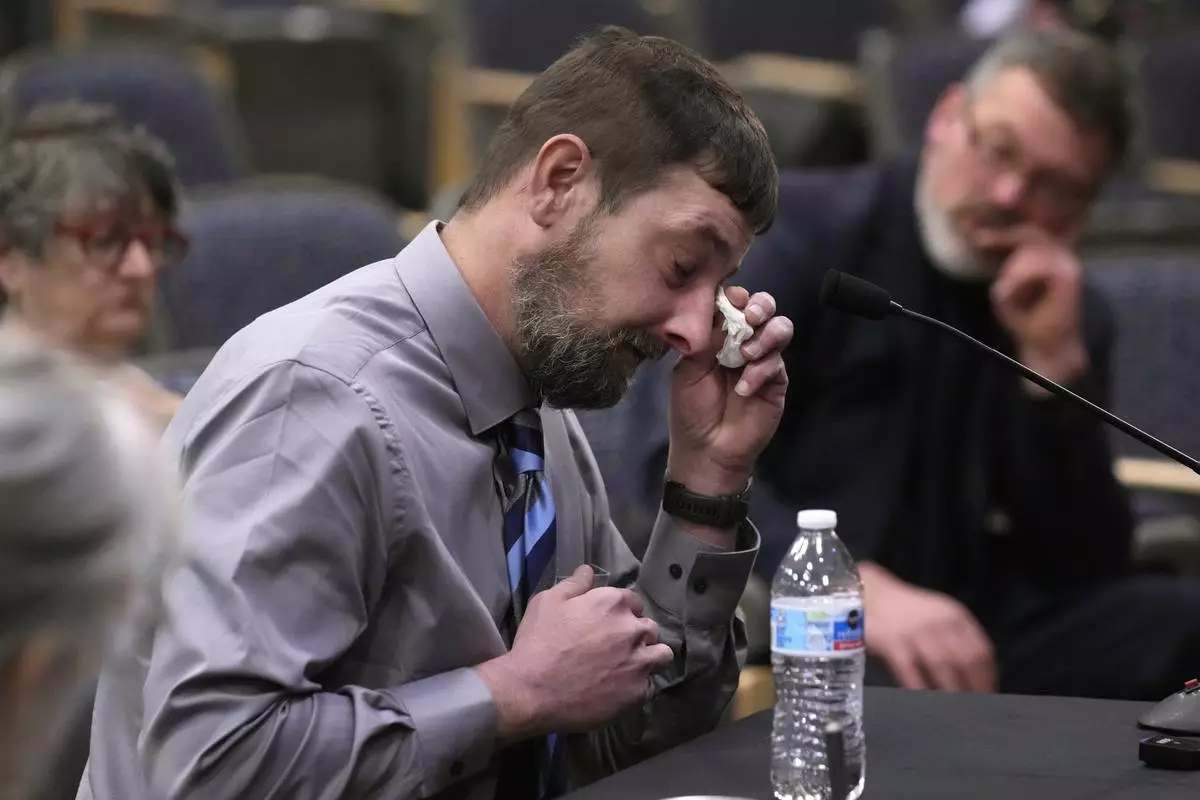
Sean Hodgson, a member of the U.S. Army Reserve, wipes tears while recalling the moment he heard about the mass shooting, Thursday, April 25, 2024, in Augusta, Maine, during a hearing of the independent commission investigating the law enforcement response to the mass shooting in Lewiston, Maine. (AP Photo/Robert F. Bukaty)
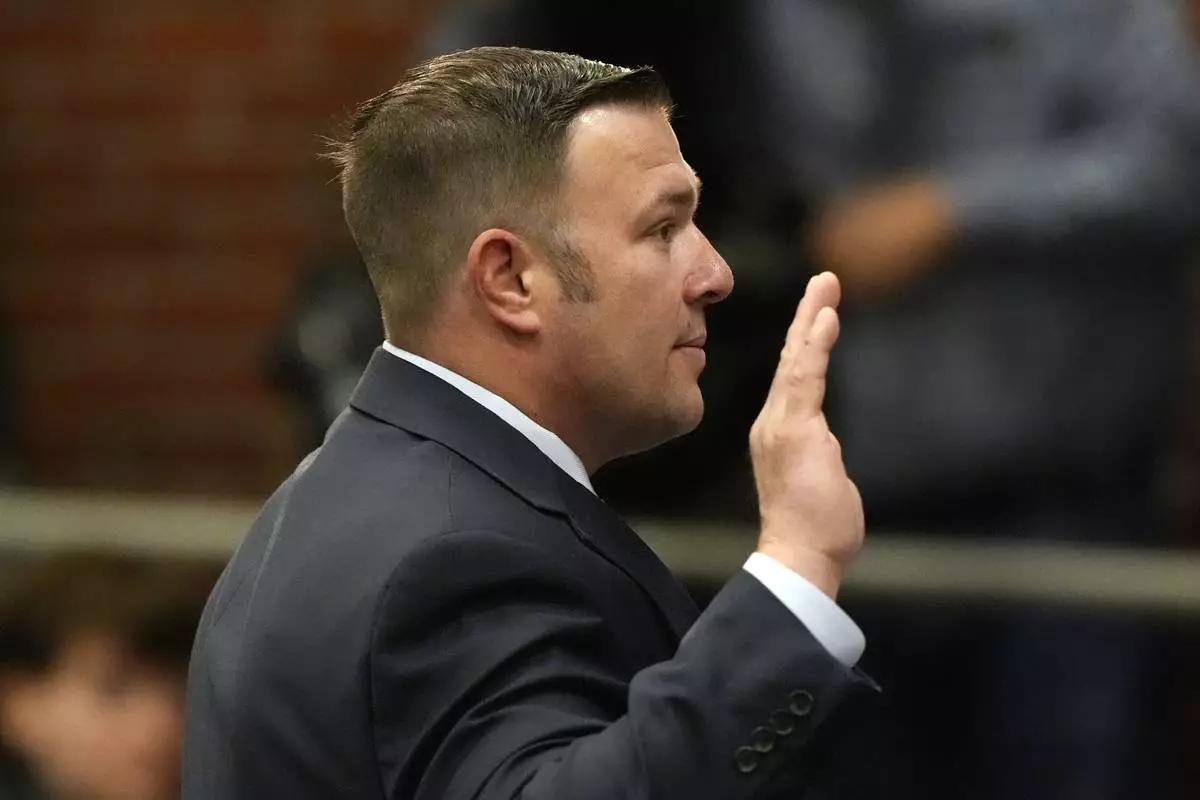
Daryl Reed, a member of the U.S. Army Reserves, is sworn in before giving testimony Thursday, April 25, 2024, in Augusta, Maine, during a hearing of the independent commission investigating the law enforcement response to the mass shooting in Lewiston, Maine. (AP Photo/Robert F. Bukaty)
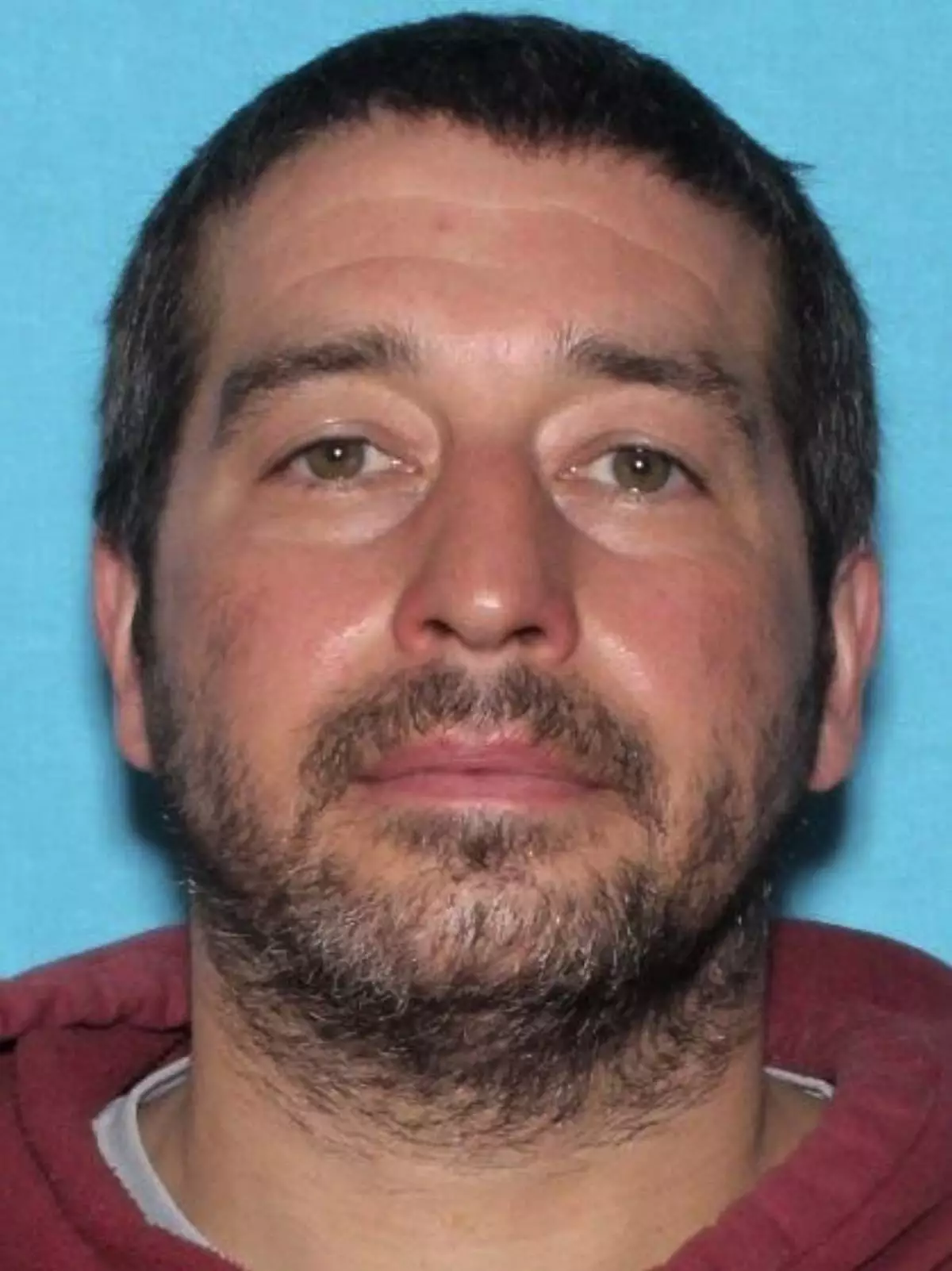
FILE - This photo released by the Lewiston, Maine, Police Department shows Robert Card, who was responsible for the mass shootings in Lewiston, Maine, on Oct. 25, 2023. Sean Hodgson, a fellow U.S. Army reservist who sounded the clearest warning ahead of Maine’s deadliest mass shooting, is expected to answer questions Thursday, April 25, 2024, from the commission investigating the tragedy. (Lewiston Police Department via AP, File)
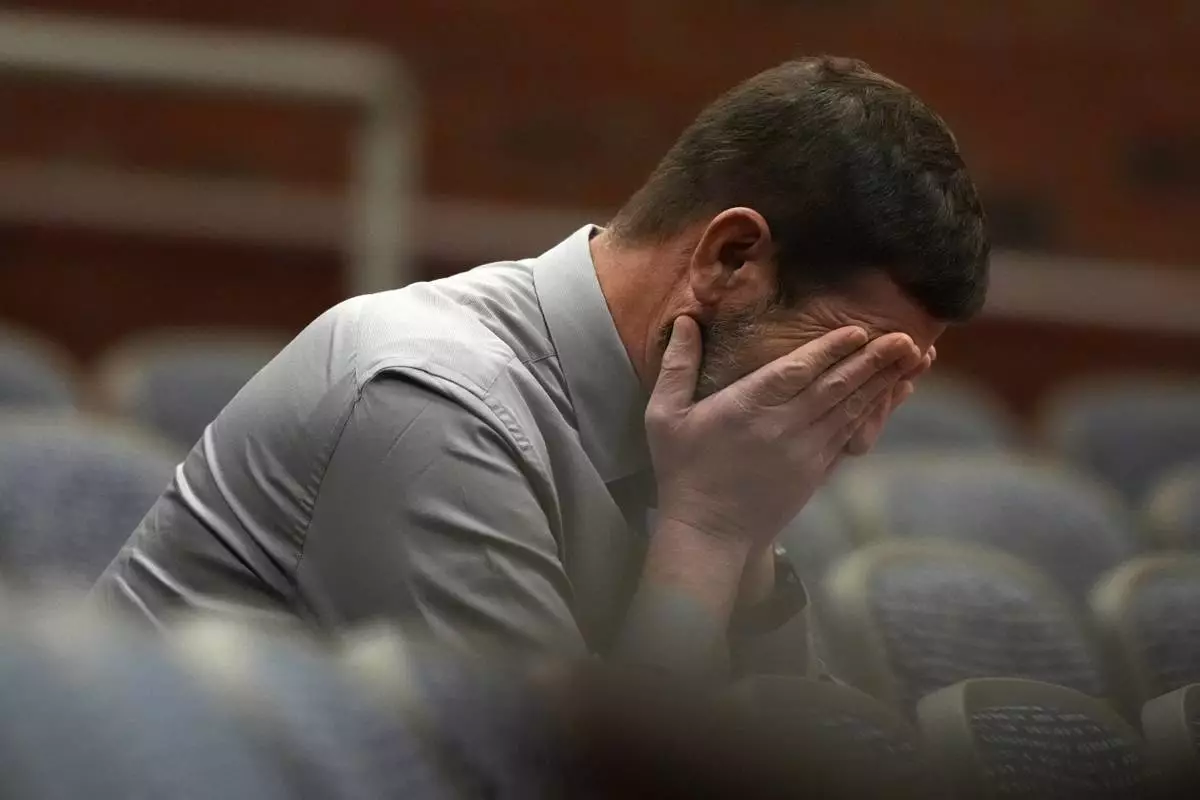
Sean Hodgson waits to be called to give testimony, Thursday, April 25, 2024, in Augusta, Maine, during a hearing of the independent commission investigating the law enforcement response to the mass shooting in Lewiston, Maine. Hodgson had alerted an Army supervisor in September that his friend, Robert Card, was capable to doing a mass shooting. (AP Photo/Robert F. Bukaty)

















